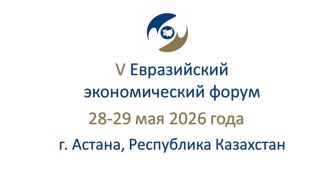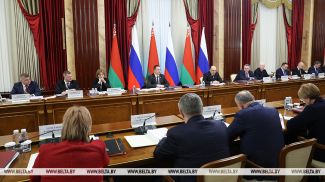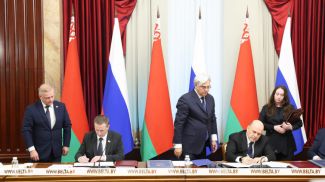
MOSCOW, 7 August (BelTA) – The Eurasian Economic Commission (EEC) is looking into the feasibility of a free trade agreement between the Eurasian Economic Union (EAEU) and Tunisia, the EEC press service told BelTA.
Prospects for trade and economic cooperation between the EAEU and the Tunisian Republic were discussed during a seminar chaired by Vladimir Serpikov, Director of the EEC Trade Policy Department at the EEC headquarters. Representatives of government agencies, business communities and academic circles from EAEU member states examined the aspects of market access for exporters to Tunisia across key sectors, as well as measures to eliminate trade barriers.
“During the event, Tunisia was named as an important gateway to Africa’s rapidly growing market. The Commission is currently studying the feasibility of a free trade agreement between the EAEU, its member states and the Tunisian Republic,” the EEC noted.
“The discussion demonstrated clear mutual interest from both the EAEU and Tunisia in expanding cooperation. The parties are committed to identifying and removing trade barriers and see substantial potential for trade growth,” Vladimir Serpikov summarized.
Prospects for trade and economic cooperation between the EAEU and the Tunisian Republic were discussed during a seminar chaired by Vladimir Serpikov, Director of the EEC Trade Policy Department at the EEC headquarters. Representatives of government agencies, business communities and academic circles from EAEU member states examined the aspects of market access for exporters to Tunisia across key sectors, as well as measures to eliminate trade barriers.
“During the event, Tunisia was named as an important gateway to Africa’s rapidly growing market. The Commission is currently studying the feasibility of a free trade agreement between the EAEU, its member states and the Tunisian Republic,” the EEC noted.
“The discussion demonstrated clear mutual interest from both the EAEU and Tunisia in expanding cooperation. The parties are committed to identifying and removing trade barriers and see substantial potential for trade growth,” Vladimir Serpikov summarized.













